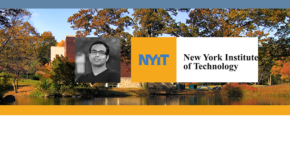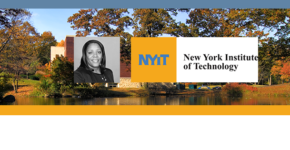Tag: technology
-

Sheila Jaswal, Amherst College – Retention of Women and Underrepresented Minorities in STEM
On Amherst College Week: How do we increase STEM enrollment for women and underrepresented minorities? Sheila Jaswal, associate professor of chemistry, answers this question. Sheila Jaswal is an associate professor of chemistry and member of the biophysics and biochemistry program at Amherst College. She attended Mills College in Oakland, Calif., where she graduated with a…
-

Michelle Watts, American Public University – The Great Broadband Divide
Not everyone is online in our connected world. Michelle Watts, faculty director and assistant professor in the school of security and global studies at American Public University, examines why some Native Americans still have limited access and how to fix it. Michelle Watts has a degree in International Studies from American University in Washington, D.C.,…
-

Krystle Cobian, University of California Los Angeles – Women of Color in STEM
On this Student Spotlight: How do we support minority groups who want a career in STEM? Krystle Cobian, PhD student at the University on California, Los Angeles, explains why what happens after graduation can help keep women on the STEM career path. Krystle Cobian is a graduate student researcher at HERI. Her research interests include…
-

Kiersten Greene, SUNY New Paltz – Tech in the Classroom
Classrooms are becoming digitally smarter by the year. Kiersten Greene, assistant professor of literacy education in the department of teaching & learning at SUNY New Paltz, determines teachers aren’t getting taught how to use these new devices first. Kiersten Greene is an Assistant Professor of Literacy Education in the Department of Teaching & Learning at…
-

Brian Krupp, Baldwin Wallace University – Safeguarding Personal Data on our Phones
The misuse of our smartphone data is becoming better known by the day. Brian Krupp, professor in the computer science department at Baldwin Wallace University, explores a new tool to help keep our privacy while browsing. Dr. Brian Krupp is an Assistant Professor in the Mathematics and Computer Science Department at Baldwin Wallace University in…
-

Kiran Balagani, New York Institute of Technology – Biometrics and Mobile Device Security
On New York Institute of Technology Week: Increased security for smartphones is hard to come by without consequences for users. Kiran Balagani, associate professor of computer science at the New York Institute of Technology, describes these challenges. Kiran Balagani co-directs the cybersecurity laboratory in NYIT’s School of Engineering and Computing Sciences, and conducts research in…




